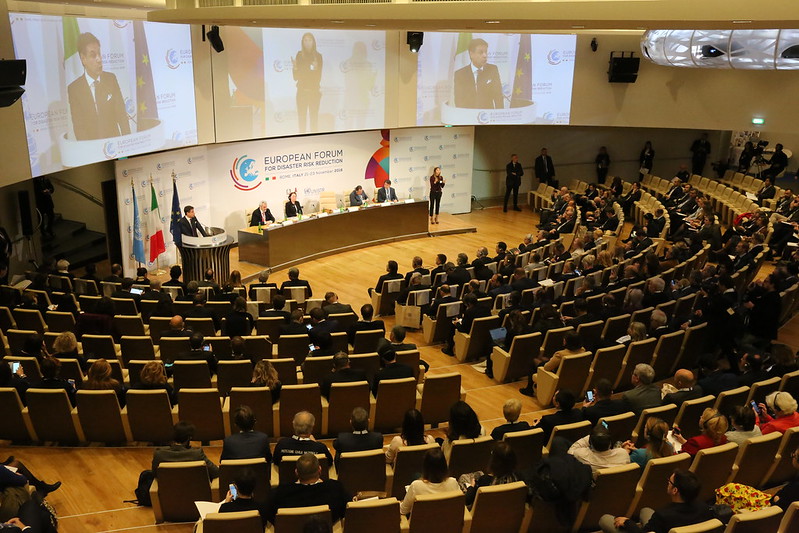European Forum for Disaster Risk Reduction

Debates, round tables, plenary and working sessions were animated by more than one hundred speakers, who brought their experience to discuss together risks related to climate change, natural and man-made disasters and strategies for their reduction.
These are the focus of the international event that placed at the center of the debate the resilience of countries, communities and individual citizens.
A large number of issues were addressed: from sustainable finance to the preservation of cultural heritage, from urban challenges to social inclusion.
No man is an island, and no country can deal alone with the risk reduction issue: this is the firm conviction that emerged from the three days of work, in which Italy offered its contribution in terms of ideas, best practices, risk reduction policies and enhanced the need for transversal, integrated solutions, aimed at consolidating cooperation at national, supranational and international level.
The Forum 2018 closed with the signing, by the heads of delegations of participating countries, of the Declaration of Rome, which will be the starting point for the work of the Global Forum of Geneva 2019 that, in continuity with the Italian event, will focus on resilience and the goal of more cohesive and inclusive communities.
Address globally the significant and increasingly complex threats posed by human and technological risks, implement governance mechanisms to encourage multi-risk approaches that can reduce the impact of disasters, implement Build Back Better policies, improve early warning and communication systems in case of disaster, use urban and land planning as a means to mitigate the future impacts of disasters and break the cycle of recurring events.
These are some of the actions proposed in the "Rome Declaration": final document in 24 points, signed by the heads of delegations of the countries participating in the International Forum for Disaster Risk Reduction, calling on all governments and stakeholders to support civil protection authorities to better integrate climate change risks into risk reduction actions and encourage greater accountability and better governance, including through the systematic collection and recording of damage and losses in the event of disasters.
The Declaration places particular emphasis on active community participation and the need to promote a culture of self-protection and resilience, including through the involvement of the scientific and academic communities in National Disaster Risk Reduction Platforms.
The document also emphasizes the need to involve civil society in the implementation of the Sendai Framework Program, provided for in the agreement adopted by the United Nations in 2015 to reduce the damage caused by disaster events.